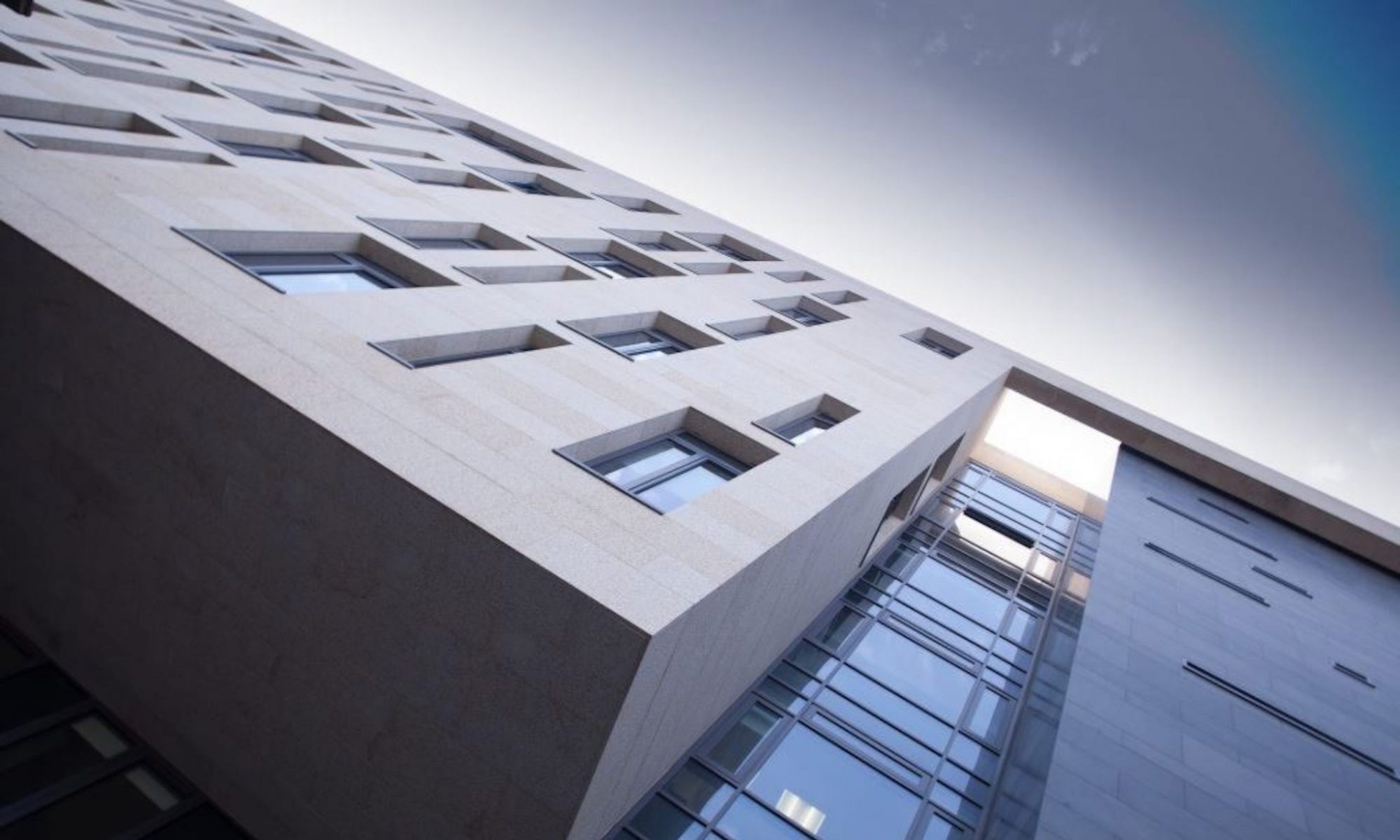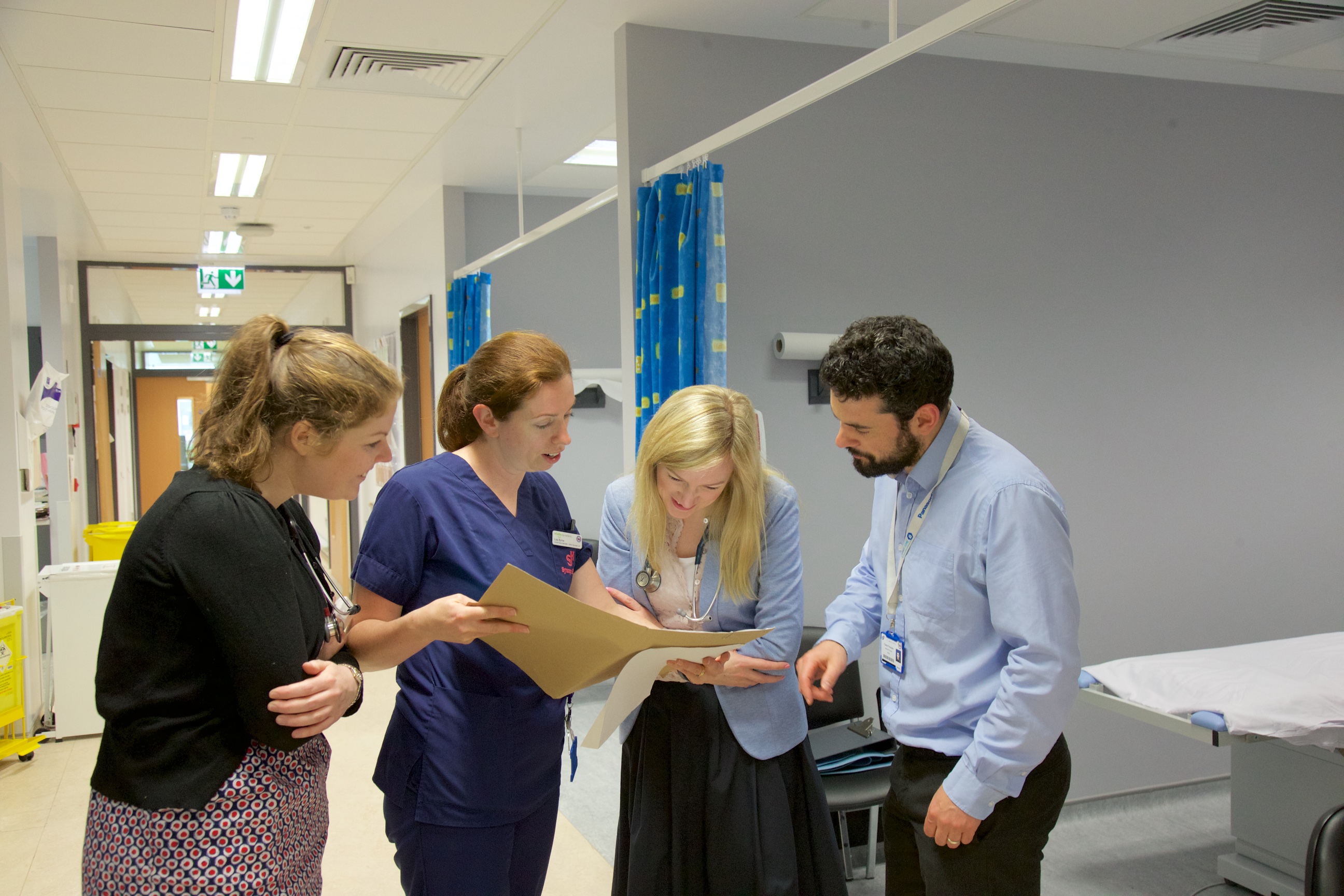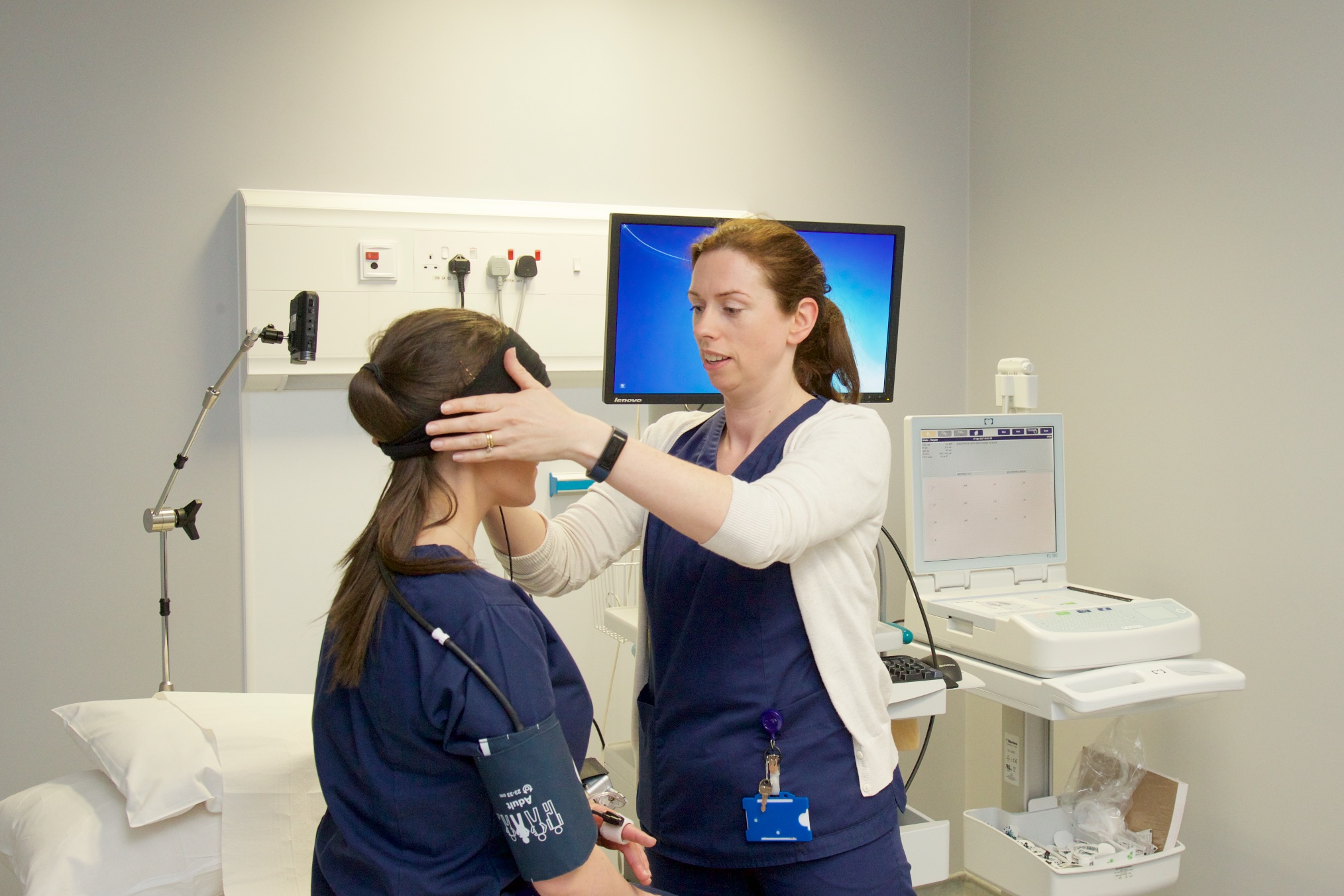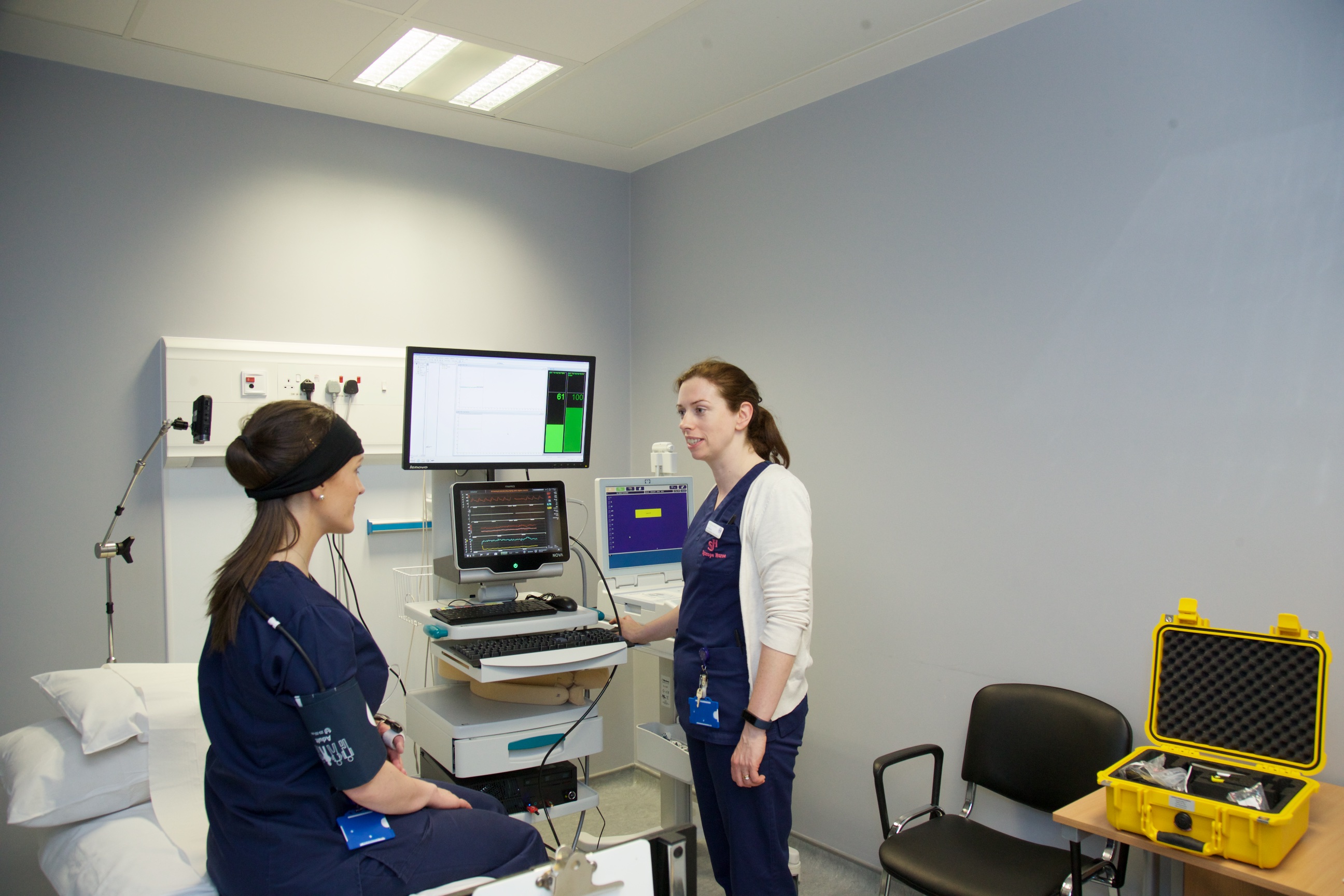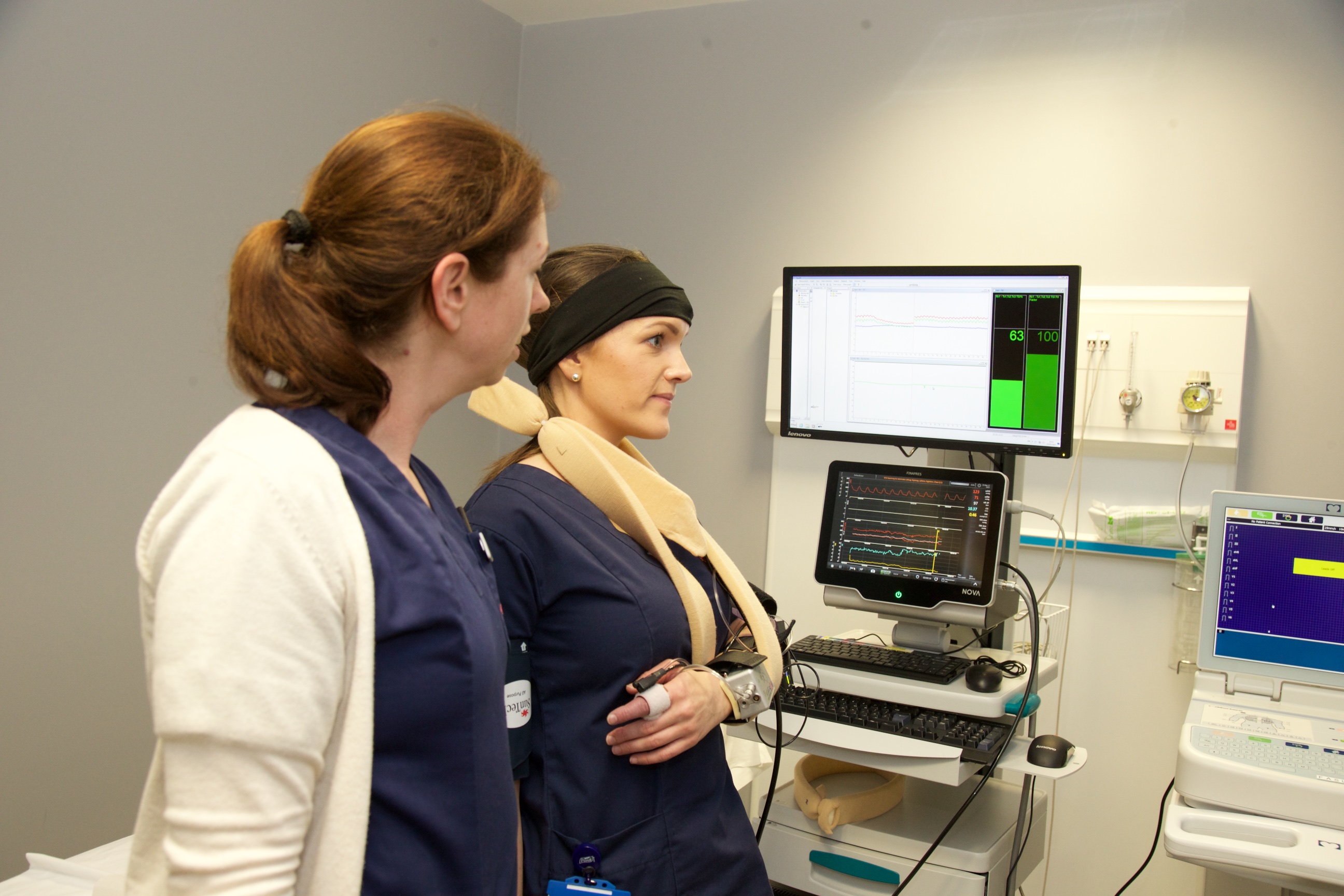Research at the Biomedical Engineering lab at MISA is focused on bringing benefits to the patient through the application of engineering science. Through engineering research, new technologies can be developed for more rapid and effective diagnosis, underlying disease processes can be better understood, existing technologies can be more effectively applied and care made more efficient.
Gait & Falls

Gait analysis is the quantitative systematic study of human walking. The continuing ability to navigate the environment successfully and without falling is an essential component of independent living. The team have established a clinical gait analysis laboratory in MISA. The lab is situated adjacent to the outpatient area of the MISA building and is well positioned to facilitate state of the art gait research in the assessment and rehabilitation of gait in fallers and frail elderly.
A range of sensors are utilised in the lab for the quantitative assessment of gait in older adults. Equipment includes a GAITRite pressure sensitive floor mat, a Codamotion 3D motion analysis system, and inertial sensor technology (www.shimmer.com). The use of inertial sensors allows for the assessment of gait in free walking environments and is a promising area of research as a means of monitoring gait decline in community dwelling older adults.
Looking to inpatient care, a further sub-theme of falls research at the Biomedical Engineering Lab at MISA is in exploring falls prevention and detection technology for improving management of falls in tertiary care – with a focus on usability by staff and user-centred design.
Neurocardiovascular Function
Our work on neurocardiovascular systems examines the interplay between the health of the cardiovascular system, its neural regulatory systems and the brain.
Our ultimate aim is to provide insights into mechanisms which to lead to falls, faints, cognitive impairment and other age-related issues. This approach is informing scientific development of novel diagnostic and treatment approaches that leverage cutting edge technology.
Our unique integration within MISA allows us to rapidly translate our findings into impactful and innovative clinical processes for example within the Falls and Syncope unit (FASU) in MISA. As part of this work we have recently introduced innovative measurements of cerebral perfusion and beat-to-beat blood pressure into clinical use in FASU.
Our work is carried out in collaboration with our broad network of clinical and academic colleagues in MISA, St James’s Hospital, TCD and our international collaborators.
For further details on the extensive work carried out in this area see here.
Clinical Data Analysis
Modern healthcare decisions are increasingly being driven by insights gleaned from data. Ultimately this is done with a view to improving services, outcomes and experiences for patients and carers.
The MISA Biomedical Engineering Lab has strong clinical data analytics expertise across the full data pipeline, from signal processing patient data obtained from advanced physiological sensors, to modelling disease processes and the use of machine learning in analysing large scale physiological datasets such as the Irish Longitudinal Study on Ageing (TILDA) database.
With our software and device design skills we also have the proven expertise to translate these data driven insights into user friendly clinical decision support tools.
